“Non amavo altro che le parole… Avrei innalzato cattedrali di parole sotto l’occhio azzurro della parola cielo”
(J.P. Sartre)
La ribellione, la malinconia, gli occhi bistrati, il pensiero aperto. L’avidità di vivere e far finta che non sia vero, le maglie a righe, la musica jazz, le caves di Parigi negli anni cinquanta.
E lei, Juliette Gréco sopra tutti, smarrita ad arte per diventare una musa scendeva le scale del Tabou e ne usciva a notte fonde aspettando l’alba sulla Rive Gauche. Il volto pallido, gli zigomi alti, l dolcevita nero e lo spirito maudit la resero l’incarnazione perfetta dell’esistenzialismo. Di lei si innamorò il genio del jazz, Miles Davis, una passione intensa e breve giocata fra la capitale francese e la splendida New York.
Parigi viveva anni favolosi, la cultura era nei bar. Il “Café de Flore”, la “brasserie Lipp” erano i luoghi dove letterati ed artisti ordinavano da mangiare e passavano lunghe ore a parlare e guardare lontano.
Sartre, Picasso, Mirò, la De Beauvoir, Camus: l’alternativa per loro era Les Deux Magots, il più antico tra i caffè letterari, creato nel 1880 il cui nome si rifà ad un celebre negozio di tessuti e biancheria.
Sartre, Picasso, Mirò, la De Beauvoir, Camus: l’alternativa per loro era Les Deux Magots, il più antico tra i caffè letterari, creato nel 1880 il cui nome si rifà ad un celebre negozio di tessuti e biancheria.
Se avessi la macchina del tempo vi porterei laggiù, in una di quelle caves a ballare fino a notte fonda. Per poi guardarci con gli occhi stanchi, riflessi lungo la Senna Sous le Ciel de Paris.
Indosso il libro di Bertrand Dicale, Juliette Gréco le vite di una cantante
Photo Credit: Maddalena Barletta
I loved nothing more than words … I would have raised the cathedrals of words under the eye of the word blue sky” J.P. Sartre
The rebellion, the melancholy, the dark eyes, the free thinking. The love of life pretending it is not true, the striped T-shirts, jazz music, the caves of Paris in the fifties. And Juliette Gréco above all, lost on purpose to become a muse, would walk down Tabou’s stairs and leave at late night waiting for the dawn on the Left Bank.
The pale face, high cheekbones, a black turtleneck, she was the perfect embodiment of existentialism.
Miles Davis, the jazz genius, fell in love with her: a short and intense passion played between the French capital and the beautiful New York.
Paris lived fabulous years from the cultural point of view. The “Café de Flore”, the “Brasserie Lipp” were the places where writers and artists would eat and spent long hours talking and looking far away. Sartre, Picasso, Miro, Beauvoir, Camus, the alternative for them was Les Deux Magots, the oldest of the literary cafes created in 1880, whose name refers to a famous textile shop and laundry. If I had a time machine I would carry you there in one of those caves dancing until the early hours. Then look our tired eyes reflection on the Seine Sous le Ciel de Paris.
I have with me Bertrand Dicale book, Juliette Gréco life of a singer.
I was wearing
Vintage Coat
T-shirt by H&M
Sunglasses by Vetta
Bag by Baldinini
Shoes by Arfango
Socks by Enrico Coveri
Trousers by D&G
A seguire le immagini di Juliette Gréco, di Jean Paul Sartre e Simone de Beauvoir, di Pablo Picasso al Café Flore e di alcuni ragazzi dentro Le Tabou
Share:

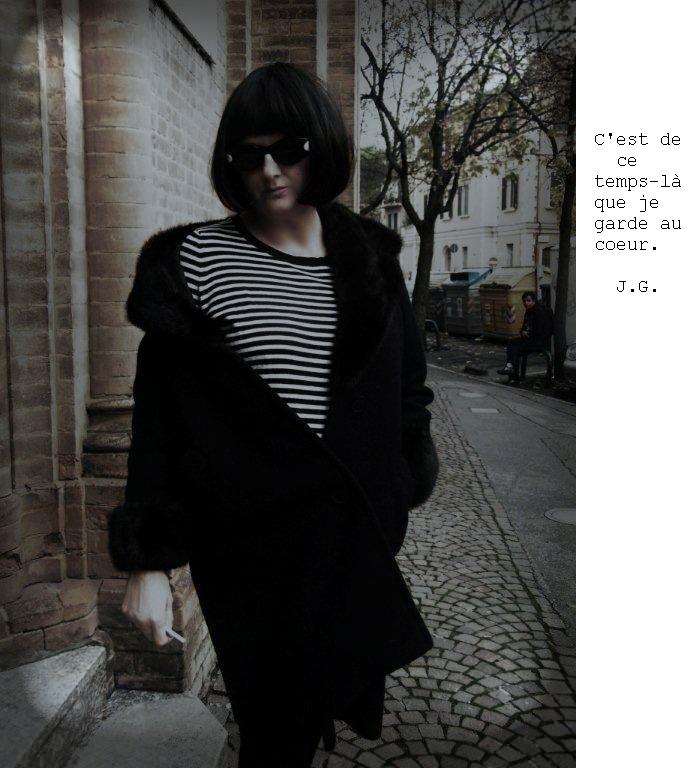

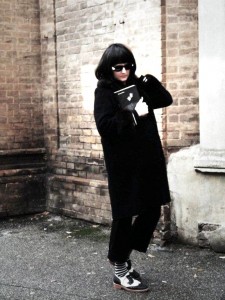
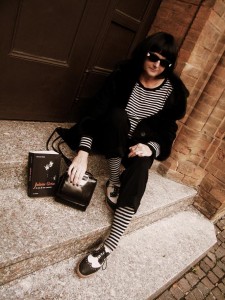
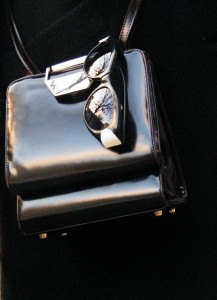
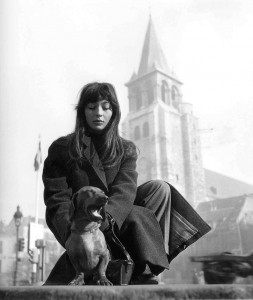
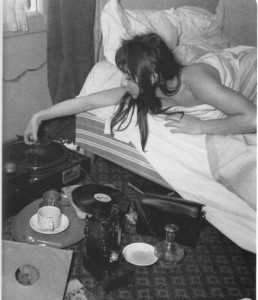
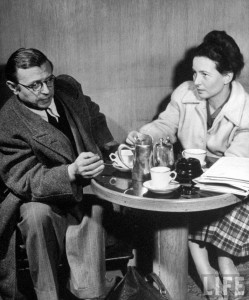
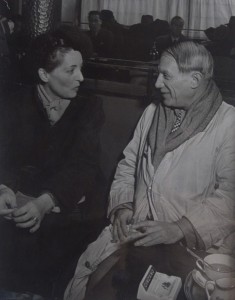
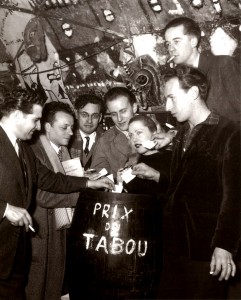
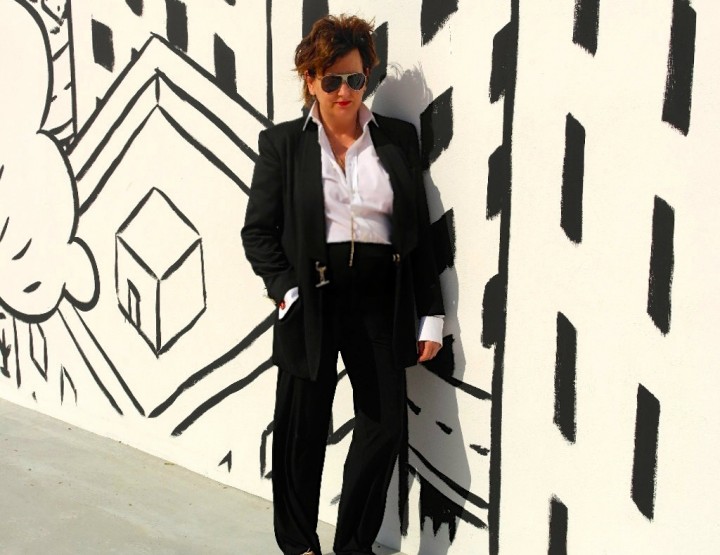
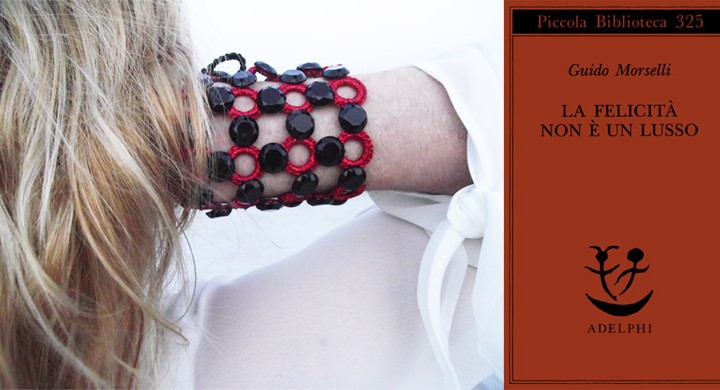
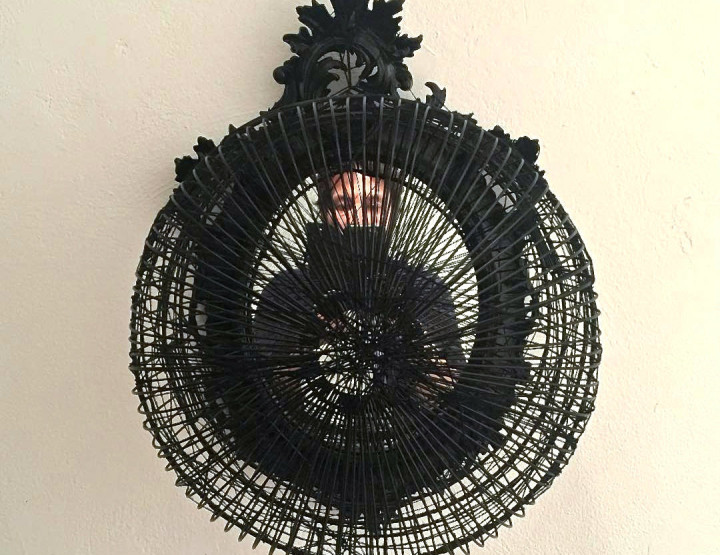

Foto stupende